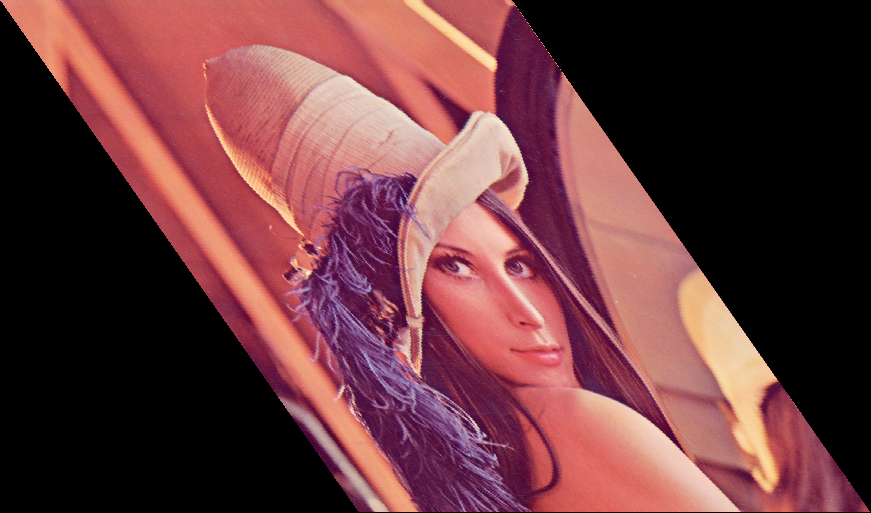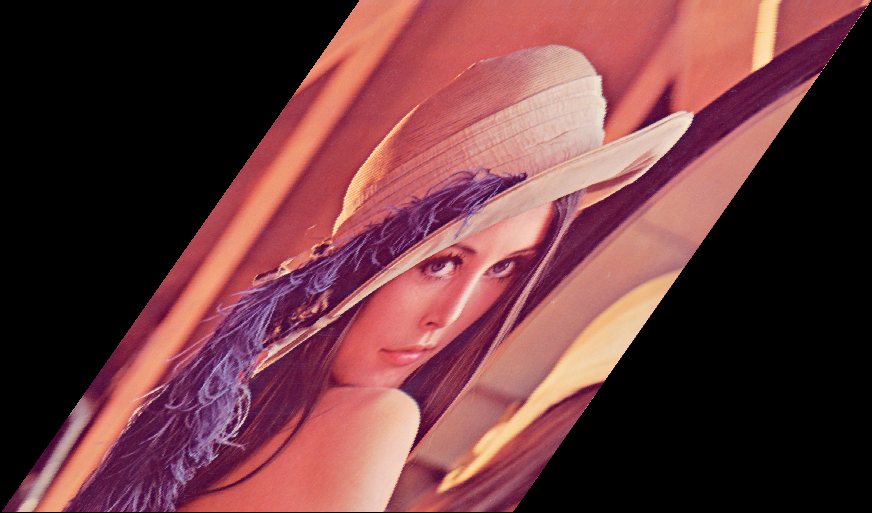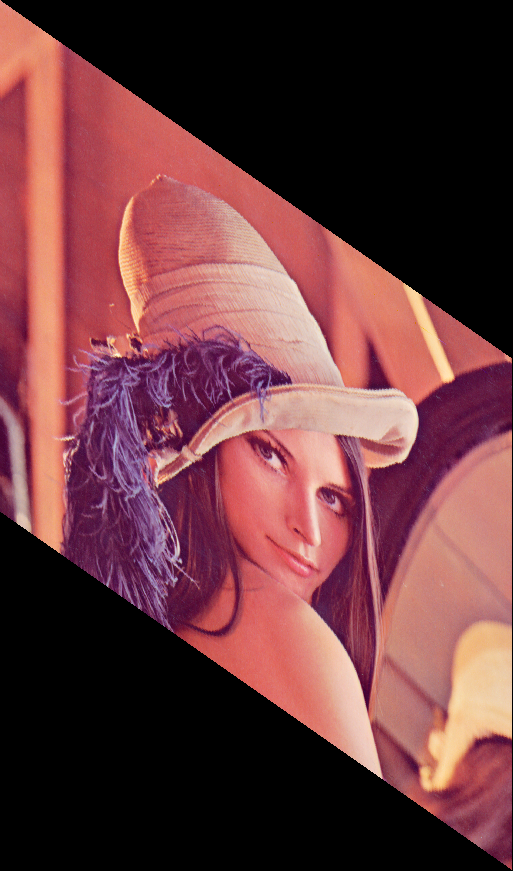[ad_1]
I found some time to work on this.
Now I understand what you tried to achieve with the offset computation, but I’m not sure whether yours is correct.
Just change all the cv::Vec3b to unsigned char or uchar and load as grayscale, if wanted.
Please try this code and maybe you’ll find your error:
// no interpolation yet
// cv::Vec3b only
cv::Mat shear(const cv::Mat & input, float Bx, float By)
{
if (Bx*By == 1)
{
throw("Shearing: Bx*By==1 is forbidden");
}
if (input.type() != CV_8UC3) return cv::Mat();
// shearing:
// x'=x+y·Bx
// y'=y+x*By
// shear the extreme positions to find out new image size:
std::vector<cv::Point2f> extremePoints;
extremePoints.push_back(cv::Point2f(0, 0));
extremePoints.push_back(cv::Point2f(input.cols, 0));
extremePoints.push_back(cv::Point2f(input.cols, input.rows));
extremePoints.push_back(cv::Point2f(0, input.rows));
for (unsigned int i = 0; i < extremePoints.size(); ++i)
{
cv::Point2f & pt = extremePoints[i];
pt = cv::Point2f(pt.x + pt.y*Bx, pt.y + pt.x*By);
}
cv::Rect offsets = cv::boundingRect(extremePoints);
cv::Point2f offset = -offsets.tl();
cv::Size resultSize = offsets.size();
cv::Mat shearedImage = cv::Mat::zeros(resultSize, input.type()); // every pixel here is implicitely shifted by "offset"
// perform the shearing by back-transformation
for (int j = 0; j < shearedImage.rows; ++j)
{
for (int i = 0; i < shearedImage.cols; ++i)
{
cv::Point2f pp(i, j);
pp = pp - offset; // go back to original coordinate system
// go back to original pixel:
// x'=x+y·Bx
// y'=y+x*By
// y = y'-x*By
// x = x' -(y'-x*By)*Bx
// x = +x*By*Bx - y'*Bx +x'
// x*(1-By*Bx) = -y'*Bx +x'
// x = (-y'*Bx +x')/(1-By*Bx)
cv::Point2f p;
p.x = (-pp.y*Bx + pp.x) / (1 - By*Bx);
p.y = pp.y - p.x*By;
if ((p.x >= 0 && p.x < input.cols) && (p.y >= 0 && p.y < input.rows))
{
// TODO: interpolate, if wanted (p is floating point precision and can be placed between two pixels)!
shearedImage.at<cv::Vec3b>(j, i) = input.at<cv::Vec3b>(p);
}
}
}
return shearedImage;
}
int main(int argc, char* argv[])
{
cv::Mat input = cv::imread("C:/StackOverflow/Input/Lenna.png");
cv::Mat output = shear(input, 0.7, 0);
//cv::Mat output = shear(input, -0.7, 0);
//cv::Mat output = shear(input, 0, 0.7);
cv::imshow("input", input);
cv::imshow("output", output);
cv::waitKey(0);
return 0;
}
Giving me these outputs for the 3 sample lines:
[ad_2]
solved Image Shearing C++


